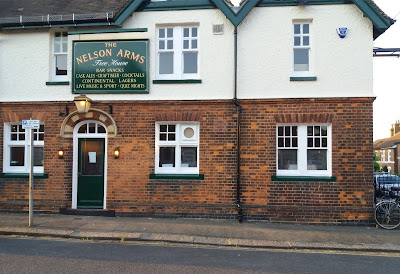Following the fallout from the Campaign for Real Ale’s
recent AGM, which saw the organisation moving to support types of beer which don’t
always meet the criteria for “Real Ale”, CAMRA finds itself mired in another
controversy.
This follows the recent resignation of Chief Executive, Tim Page,
who has been at the organisation’s helm for the past three and a half years.
Tim was appointed in 2014 to succeed Mike Benner, who without doubt was the
most successful CEO in CAMRA’s history. Mike moved across to the independent
brewer’s organisation SIBA, in order to take
on the role of Managing Director.
Mike Benner was always going to be a hard act to follow, so
Tim Page was almost certainly on a hiding to nothing when he stepped into
Mike’s shoes. Coming as he did from the Charitable Sector, Tim had little
experience of campaigning, although he did have considerable skills in fundraising
and signing up new members to the charities he worked with.
His appointment certainly raised a few eyebrows at the time,
and ruffled a few feathers as well, but by concentrating too much on increasing
CAMRA membership, there were concerns that Tim was missing the bigger picture. There
was also criticism, which was not entirely unfounded, of a lack of direction
within the organisation and, on a more personal level, he was accused of having
too cosy a relationship with the Pub Companies.
Just over a year ago, I wrote a post entitled “It’s more than just a numbers game,” in which I criticised CAMRA’s obsession with increasing
membership numbers and asked just how many of these new members would play an
active role within the Campaign? Unsurprisingly there have been no answers to this and other
questions, which does rather turn the spotlight onto the departing Chief Executive’s
decision to step down after just three and a half years in the role.
Page is reported as seeking to return to the Charitable Sector for the last few years of his working life, so
that he can help those most in need, and in a statement, CAMRA’s National
Chairman, Jackie Parker said, “Tim has made a considerable impact during his
time as our Chief Executive. The past three years have seen the Campaign
engaged in a major strategic review of its purpose and positioning within the
sector, and Tim has provided advice and support to the volunteer leadership
throughout that process”.
The national press were not so charitable, if you’ll pardon
the pun, and pinned the blame for Page’s departure on the failure of getting
all six of the Special “Revitalisation”
Resolutions passed at April’s AGM.
Away from the press spotlight, Ms Parker was also rather
more forthright. In an email to members she said, that whilst Tim had been
instrumental in executing a major strategic review of CAMRA, this action had
aroused strong passions and unsettled many members.
She countered this by saying that, “The decisions taken at last month’s
AGM and Members’ Weekend mean that the Campaign will be in a stronger
position to recruit active members, and to continue to campaign effectively.” Jackie went on to thank Tim, on behalf of the National
Executive for his contribution to the Campaign during his time with CAMRA and
wished him all the very best for the future.
So where now for CAMRA? There are those in the Campaign who
will be glad to see the back of Tim Page, as he certainly aroused strong
passions. On the other hand there are many who are grateful for the drive
and determination he showed in championing the “Revitalisation Project”, which
was aimed at modernising CAMRA and bringing the organisation into the 21st
Century.
So let’s leave the final words to Mr Page, who said in a
statement, “I am very grateful for having had the opportunity to be part of
CAMRA, which is a truly remarkable organisation. The past 42 months have seen
the Campaign maintain its effectiveness in campaigning and lobbying for real
ale, cider and perry to be available in every community across the UK;
and for those communities to continue to be served by pubs, which provide wide
range of benefits for individuals and society as a whole”.
“I am grateful for the friendship and support that I
have enjoyed from people across the sector, and look forward to keeping in
touch with friends within and outside CAMRA”.























































